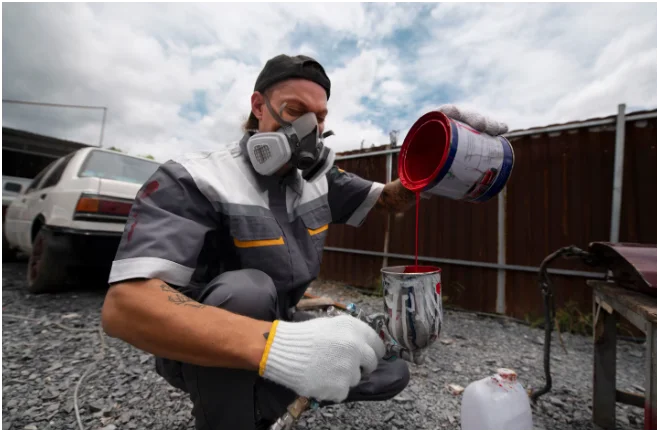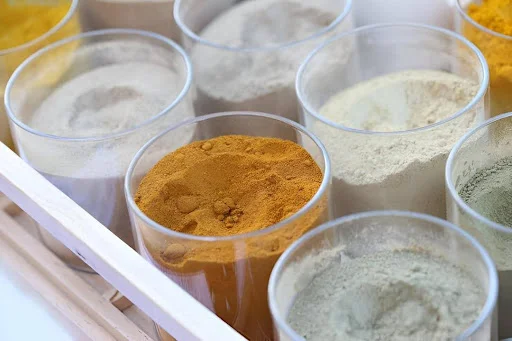When the paint on the outside of your building begins to peel, bubble, or fade prematurely, most people assume it’s cheap paint or poor workmanship. However, the real culprit may be below ground — poor stormwater drainage. When stormwater isn’t properly managed, it leads to trapped moisture that damages not only the foundation but also the exterior walls and paint designed to protect them.
This article explains how stormwater problems impact exterior paint, the warning signs to look for, and how professional Stormwater Drain Cleaning and repainting services from an experienced Commercial Painter can protect your property in the long term.
What is the impact of stormwater on paint?
1. Relationship between water and paint damage
Water is one of the greatest enemies of paint. When stormwater drainage systems become blocked or overflow, excess moisture can seep into exterior walls. Over time, this trapped moisture causes bubbling, cracking, and peeling. Even high-quality paint won’t last if the surface underneath remains damp.
2. Humidity accumulation behind walls
In areas with poor soil drainage or heavy rainfall, water can collect around a building’s base. Through capillary action, moisture rises and seeps into painted walls. This ongoing dampness weakens the bond between paint and plaster, leading to visible flaking and discolouration.
Water retention can also cause efflorescence — a chalky white deposit on walls — which spoils the property’s appearance and signals deeper moisture issues.
3. The role of clogged drains
Blocked gutters and drains are among the leading causes of stormwater problems. When leaves, dirt, and debris clog your system, water can’t drain properly, leading to overflow during heavy rain. This excess water may splash onto painted walls or pool around the building’s base, causing long-term exposure and paint deterioration.
That’s why regular Stormwater Drain Cleaning isn’t just about preventing flooding — it’s also crucial for preserving the look and health of your property.
Signs that stormwater issues are damaging your paint
Catching early signs of drainage-related paint damage can save you from major repairs. Watch for:
- Peeling or flaking paint near the lower walls
- Damp or dark patches on exterior surfaces
- Mould or mildew growth on painted areas
- Cracks in paint or plaster that return after repainting
- Water stains around windows, doors, or gutters
If you notice these issues, inspect your stormwater system immediately. Delays can cause deeper structural damage and require both drainage repair and a full repaint.
Preventing future damage
1. Routine stormwater drain cleaning
Regular Stormwater Drain Cleaning is the most effective way to prevent water damage to exterior paint. Professional cleaning ensures water flows freely off your property, preventing moisture buildup.
If you’re searching for a plumber near me, licensed technicians can provide expert services using high-pressure jets and CCTV drain cameras to remove blockages and inspect for damage. Regular maintenance also helps identify potential problems early, such as cracked pipes or faulty guttering, before they affect your walls.
2. Maintenance of gutters and downpipes
Your gutters and downpipes play a vital role in directing water away from your building. Over time, leaves, twigs, and dirt can clog these systems. Cleaning and inspection help avoid overflow and ensure efficient drainage.
Installing gutter guards can further reduce debris build-up, extend the lifespan of your drainage system, and protect your exterior surfaces.
3. Landscaping adjustments
Poor landscaping can contribute to drainage problems. If the ground around your property slopes toward the building rather than away from it, stormwater will pool near the foundation. Regrading the soil helps guide water away from your structure.
Adding gravel or other permeable surfaces allows water to soak into the ground instead of collecting around your walls — reducing long-term damage.
When to repaint (and why it matters)
After fixing drainage issues, repainting your exterior is essential to restore protection. However, only repaint once the source of water damage has been resolved. Repainting too early means the same problems will reappear.
1. Surface preparation is key
Before repainting, surfaces must be completely dry and free of damaged paint or mould. A professional Commercial Painter will strip away flaking paint, repair cracks, and apply a moisture-resistant primer. This creates a strong base for the new coat and ensures long-lasting adhesion.
2. Choose the right paint
Use waterproof or weather-resistant paint for exterior walls exposed to rainfall or moisture. These coatings create a protective barrier that prevents water from seeping through. A Commercial Painter can recommend suitable products for your building materials and local conditions.
3. Regular maintenance
After repainting, conduct regular inspections, especially after each rainy season. Address any small cracks or early signs of water damage promptly and keep your drainage system well-maintained to avoid costly repainting in the future.
Why professional help matters
DIY drain cleaning or repainting might seem cost-effective, but without addressing the root cause, the issue will return. Professionals have the tools, training, and experience to solve both visible and hidden problems effectively.
- A commercial plumber can ensure drains and pipes are cleared safely and properly.
- Professional Stormwater Drain Cleaning removes debris and prevents future blockages.
- Skilled Commercial Painter services guarantee that repaired surfaces are properly sealed, protected, and visually appealing.
Together, these services safeguard both your property’s appearance and structural integrity.
Conclusion
Peeling paint, bubbling walls, and damp patches often signal drainage problems rather than poor paintwork. Fortunately, these issues can be prevented with proper maintenance.
Start by scheduling regular Stormwater Drain Cleaning with an experienced commercial plumber to maintain free-flowing drains and eliminate moisture buildup. Once the drainage system is repaired, hire a qualified Commercial Painter to restore and protect your property’s exterior.
By maintaining both drainage and surface protection, you’ll prevent water damage, extend the life of your paintwork, and preserve your property’s value for years to come.
FAQs
1. How does poor stormwater drainage damage exterior paint?
Blocked or faulty drainage traps moisture behind walls, causing paint to bubble, peel, and crack as dampness accumulates over time.
2. How often should I schedule professional stormwater drain cleaning?
It’s recommended to have Stormwater Drain Cleaning every six months or before the rainy season to prevent blockages and protect your walls and paintwork.
3. Can walls damaged by water be repaired?
Yes, but repainting alone won’t fix the issue. You must first repair the drainage system, dry the walls, and then repaint using weather-resistant products.
4. How can I tell if stormwater is affecting my paint?
Peeling paint, recurring cracks, mould growth, or water stains near the wall base often indicate stormwater drainage problems.
5. Why hire professional commercial painter services after drainage repairs?
A professional Commercial Painter ensures proper surface preparation, moisture protection, and high-quality finishes that enhance durability and prevent future damage.









